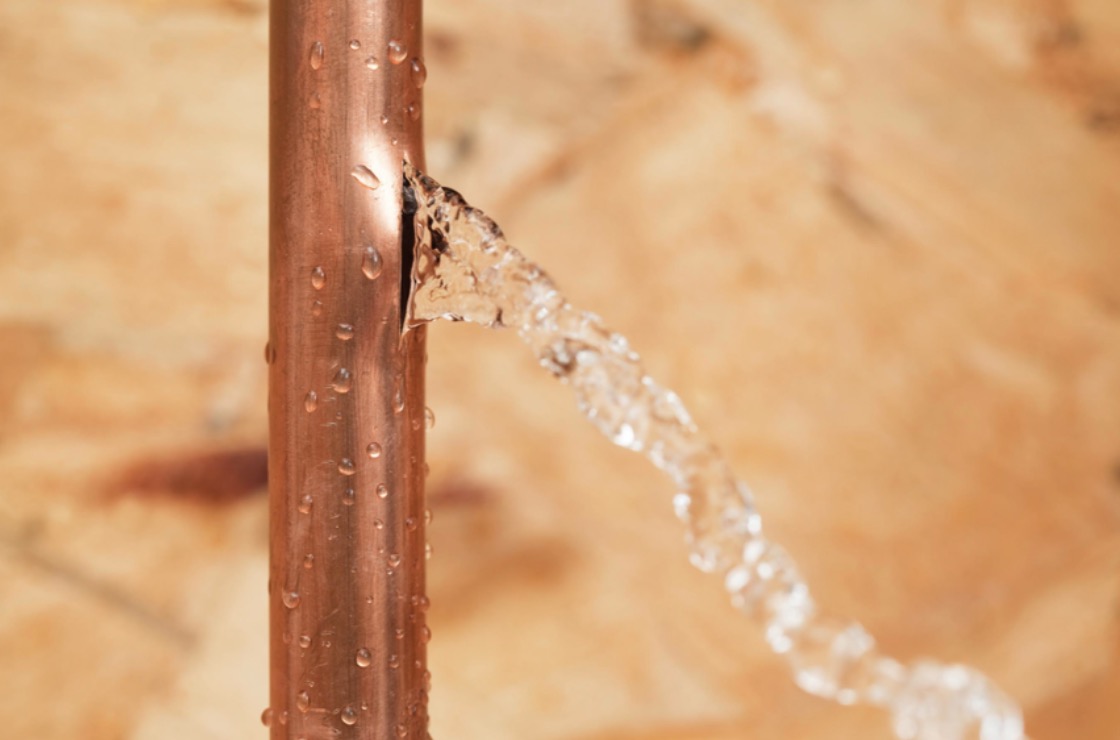Discover Common Origins Contributing To Water Leakage in Your Home
Discover Common Origins Contributing To Water Leakage in Your Home
Blog Article
They are making a few good annotation on How to detect water leaks in your home as a whole in the content directly below.

Leakages not only cause waste of water however can likewise create unneeded damages to your house and also advertise undesirable natural development. Water leaks may go unnoticed because most of the pipework in our residence is hidden. By understanding as well as looking for everyday scenarios that create leakages, you can shield your home from future leakages and unneeded damages. Today, we will check out six leakage triggers that may be creating your pipelines to leak.
Elbowing in roots
Most water leaks begin outside the house rather than inside it. If you observe an unexpected reduction in water stress, state in your tap, take time to head out and analyze your yard. You might observe damp spots or sinkholes in your lawn, and that might imply that tree roots are getting into water lines creating water to permeate out. You can have your plumber look for breach, specifically if you have trees or hedges near your property.
Corroded water supply
This may be the cause of staining or bending on your water pipes. If our plumbing system is old, take into consideration replacing the pipelines considering that they are at a higher danger of corrosion than the more recent models.
Malfunctioning Pipe Joints
The factor at which your pipes link is frequently the weakest link in the waterline. Pipeline joints can weaken with time, leading to water leakages. The bulk of pipeline joints are not conveniently visible. If you have loud pipelines that make ticking or banging noises, particularly when the hot water is switched on, your pipeline joints are possibly under a lot of pressure. It is suggested to have your plumber evaluate your system yearly.
Instant temperature adjustments.
Severe temperature adjustments in our pipelines can cause them to expand and contract unexpectedly. This growth as well as tightening may cause cracks in the pipelines, especially if the temperature level are below freezing. It would certainly be best if you watched on just how your plumbing works. The existence of the formerly pointed out scenarios often indicates a high danger.
Poor Water Connectors
At times, a leak can be triggered by loosened pipes and also pipelines that supply your appliances. Typically, changing is what triggers the loosened water Connections. You may discover when it comes to a cleaning machine, a hose may spring a leak because of drinking throughout the spin cycle. In case of a water links leakage, you might observe water running straight from the supply line or puddles around your home appliances.
Obstructed Drains
Blocked drains could be aggravating and also inconveniencing, however they can in some cases wind up triggering an overflow resulting in burst pipelines. Maintain removing any kind of materials that might go down your drains pipes that might obstruct them to avoid such inconveniences.
All the above are sources of leaks but not all water leakages result from plumbing leakages; some leaks may originate from roof leaks. All leakages should be repaired right away to stay clear of water damage.
Leaks not only cause waste of water but can additionally create unnecessary damages to your house and also advertise unwanted organic growth. By comprehending and looking for everyday circumstances that cause leaks, you can protect your house from future leaks and unneeded damage. Today, we will look at 6 leakage causes that might be creating your pipes to trickle.
At times, a leak can be triggered by loosened hose pipes and pipelines that provide your devices. In situation of a water connections leak, you might notice water running straight from the supply line or pools around your appliances.
How To Check For Water Leak In Your Home
How To Check for Leaks
The average household's leaks can account for nearly 10,000 gallons of water wasted every year and ten percent of homes have leaks that waste 90 gallons or more per day. Common types of leaks found in the home are worn toilet flappers, dripping faucets, and other leaking valves. These types of leaks are often easy to fix, requiring only a few tools and hardware that can pay for themselves in water savings. Fixing easily corrected household water leaks can save homeowners about 10 percent on their water bills.
To check for leaks in your home, you first need to determine whether you're wasting water and then identify the source of the leak. Here are some tips for finding leaks:
Take a look at your water usage during a colder month, such as January or February. If a family of four exceeds 12,000 gallons per month, there are serious leaks.
Check your water meter before and after a two-hour period when no water is being used. If the meter changes at all, you probably have a leak.
Identify toilet leaks by placing a drop of food coloring in the toilet tank. If any color shows up in the bowl after 10 minutes, you have a leak. (Be sure to flush immediately after the experiment to avoid staining the tank.)
Examine faucet gaskets and pipe fittings for any water on the outside of the pipe to check for surface leaks.
Undetected water leaks can happen without the home or business owner even realizing. If you suspect a water leak, but not able to find the source. It is time to contact a professional water leak detection service, The Leak Doctor.
How To Find a Water Leak In Your Home
https://www.leakdoctor.com/blog/How-To-Check-For-Water-Leak-In-Your-Home_AE197.html

We were shown that report about How to detect water leaks in your home from an associate on another website. So long as you enjoyed reading our page plz make sure you remember to pass it around. I treasure reading our article about Top Causes of Home Water Leaks.
Get Your Estimate Now Report this page